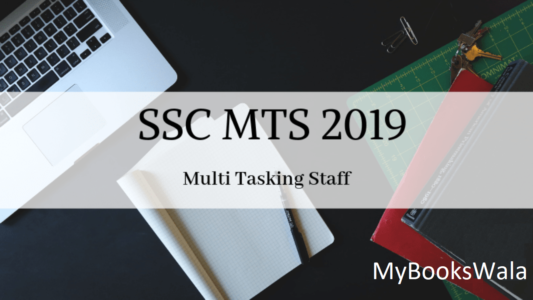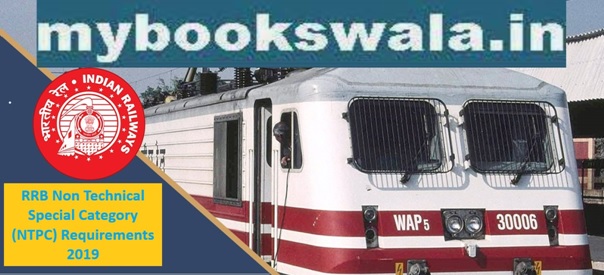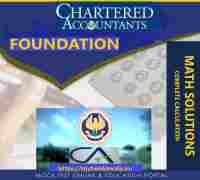CS Foundation 2019
CS Foundation New Syllabus, Exam Pattern, Mock Tests
Company Secretary Foundation Programme Syllabus Consists of Four subjects.
CS Foundation Syllabus are Business Environment & Entrepreneurship, Business Management, Ethics and Communication, Business Economics and Fundamentals of Accounting and Auditing. Foundation Course for Company Secretary (CS)
is an eight months duration course which is the first level study on the path of becoming a Company Secretary. The Programme provided by
The Institute of Company Secretaries of India (ICSI) is a Statutory Body of the Parliament of India & mixture of postal tuition and optional coaching classes. Study material is provided to the student at the time of admission. The CS Foundation Course covers the study of subjects and topics such as legal aspects of taxation, labour laws, corporate law, accounting, auditing or financial analysis etc. It is beneficial in getting a suitable position in the company.
Cut off dates for admission to CS Foundation Programme:
|
For Foundation Programme |
31st March for appearing in December Examination in the same year |
| 30th September for June Examination next year |
CS Foundation Programme can be pursued by 10+2 pass or equivalent students of Arts, Science or Commerce stream (Excluding Fine Arts).
Examination:
- Examination is conducted twice a year in June and December
- Examination fee
Foundation Programme -Rs. 1200/-
Last date for submission of application for appearing in the examination
25th March (with late fee of Rs. 250/- till 9th April)
25th September (with late fee of Rs. 250/- till 10th October)
| Medium of Examination
The Institute allows facility to students to appear in examination in English as well as in Hindi. (Except Business Communication subject of Foundation Program) |
| Qualifying Marks
A candidate is declared to have passed the Foundation / Executive / Professional examination, if he/she secures at one sitting a minimum of 40% marks in each paper and 50% marks in the aggregate of all subjects. |
| Time limit for completing CS Examination
A student is required to complete the Executive and the Professional examination within the registration period. However, on payment of requisite fees the validity of registration may be renewed / extended for further period subject to fulfilling the applicable guidelines. |
Company Secretary CS Foundation Syllabus 2017
Applicable for the students who register in Foundation Programme on or after 1st April 2017.
- Business Environment & Law
- Business Management, Ethics & Entrepreneurship
- Business Economics
- Fundamentals of Accounting and Auditing
DETAILED SYLLABUS FOR CS FOUNDATION PROGRAMME EXAMINATION
PAPER 1: BUSINESS ENVIRONMENT AND ENTREPRENEURSHIP
PART A: BUSINESS ENVIRONMENT (40 MARKS)
- Business Environment
- Introduction and Features
- Concepts of Vision & Mission Statements
- Types of Environment:
- Internal to the Enterprise
- Value System, Management Structure and Nature, Human Resource, Company Image and Brand Value, Physical Assets, Facilities, Research & Development, Intangibles, Competitive Advantage
- External to the Enterprise
- Micro: Suppliers, Customers, Market Intermediaries
- Macro: Demography, Natural, Legal & Political, Technological, Economy, Competition, Socio-Cultural and International
- Business Environment with reference to Global Integration
- Forms of Business Organization
Concept and Features in relation to following business models:
- Sole Proprietorship
- Partnership
- Company
- Statutory Bodies and Corporations
- HUF and Family Business
- Cooperatives, Societies, and Trusts
- Limited Liability Partnership
- Other Forms of Organisations
- Scales of Business
- Micro, Small and Medium Enterprises
- Large Scale Enterprises and Public Enterprises
- MNCs
- Emerging Trends in Business Concepts, Advantages and Limitations
- Network Marketing
- Franchising
- Business Process Outsourcing (BPO)
- E-Commerce
- M-Commerce
- Business Functions
- Strategic: Planning, Budgetary Control, R&D, Location of a Business, Factors affecting location, Decision Making and Government Policy
- Supply Chain: Objectives, Importance, Limitations, Steps, Various Production Processes
- Finance: Nature, Scope, Significance of Financial Management, Financial Planning (Management Decisions – Sources of Funds, Investments of Funds, Distribution of Profits)
- Marketing: Concept, Difference between Marketing and Selling, Marketing Mix, Functions of Marketing
- Human Resources: Nature, Objectives, Significance
- Services: Legal, Secretarial, Accounting, Administration, Information and Communication Technology
PART B: BUSINESS LAWS (60 MARKS)
- Introduction to Law
- Meaning of Law and its Significance; Relevance of Law to Modern Civilized Society; Sources of Law; Legal Terminology and Maxims; Understanding Citation of Cases
- Elements of Company Law
- Meaning and Nature of Company; Promotion and Incorporation of a Company; Familiarisation with the Concept of Board of Directors, Shareholders and Company Meetings; Company Secretary; E-Governance
- Elements of Law relating to Partnership
- Nature of Partnership and Similar Organisations – Co-Ownership, HUF; Partnership Deed; Rights and Liabilities of Partners: New Admitted, Retiring and Deceased Partners; Implied Authority of Partners and its Scope; Registration of Firms; Dissolution of Firms and Partnership
- Elements of Law relating to Contract
- Contract – Meaning; Essentials of a Valid Contract; Nature and Performance of Contract; Termination and Discharge of Contract; Indemnity and Guarantee; Bailment and Pledge; Law of Agency
- Elements of Law relating to Sale of Goods
- Essentials of a Contract of Sale; Sale Distinguished from Agreement to Sell, Bailment, Contract for Work and Labour and Hire-Purchase; Conditions and Warranties; Transfer of Title by Non-Owners; Doctrine of Caveat Emptor; Performance of the Contract of Sale; Rights of Unpaid Seller
- Elements of Law relating to Negotiable Instruments
Definition of a Negotiable Instrument; Instruments Negotiable by Law and by Custom; Types of Negotiable Instruments; Parties to a Negotiable Instrument – Duties, Rights, Liabilities, and Discharge; Material Alteration; Crossing of Cheques; Payment and Collection of Cheques and Demand Drafts; Presumption of Law as to Negotiable Instruments
- Role of CS- Duties and Responsibilities, Areas of Practice
Introduction; Role of Company Secretary under Companies Act, 2013- Role of Company Secretary in Employment, Role of Company Secretary in Practice; Recognition to Company Secretary in Practice under Various Laws.
PAPER 2: BUSINESS MANAGEMENT, ETHICS, AND ENTREPRENEURSHIP
PART A: BUSINESS MANAGEMENT (40 Marks)
- Nature of Management and its Process
- Meaning, Objectives, Importance; Nature of Management- Science, Art, Profession; Management Approaches; Management Functions- Planning, Organizing, Human Resource Management, Directing and Control; Principles of Management- Fayol’s and Taylor’s Principles; Managerial Skills; Task and Responsibilities of Professional Manager
- Planning
- Concept, Features, Importance, Limitations; Planning Process; Types of Plans – Objectives, Strategy, Policy, Procedure, Method, Rule, Budget; Plan vs. Programme, Policies, and Procedures; Decision-Making
- Organisation
- Concept, Features, Importance, Limitations; Organizing Process; Types of Organisation; Structure of Organisation; Centralisation and Decentralisation; Delegation; Growth in Organisation
- Human Resource Management
- Concept, Features, Importance, Limitations; Recruitment Process- Selection; Training and Development- Methods; Functions of Personnel Manager; Performance Appraisal
- Direction and Coordination
- Direction: Concept, Features, Importance, Limitations; Elements of Direction –Supervision, Motivation, Leadership, Communication;
- Co-ordination: Concept, Features, Importance, Limitations; Types- Internal and External; Co-ordination- the Essence of Management
- Controlling
- Concept, Features, Importance, Limitations; Control Process; Essentials of a Good Control System; Techniques of Control- Traditional and Non-traditional Control Devices; Relationship between Planning and Controlling
- Recent Trends in Management
- Change Management
- Crisis Management
- Total Quality Management
- Risk Management
- Global Practices
PART B: BUSINESS ETHICS (10 MARKS)
- Business Ethics
- Genesis, Concepts, Elements, Ethics in Business
- Challenges of Business Ethics and Corporate Leadership
- Ethical Principles in Business – Indian Perspective
PART B: BUSINESS COMMUNICATION (25 MARKS)
- Business Ethics
Business Communication Concept, features, importance, limitations; means of Communication- Written, Oral, Visual, Audio Visual; Principles and Essentials of Business Communication; Process of Communication; Barriers to Communication
- Essential of Good Communication
Grammar and Usage; enriching vocabulary, words- multiple meaning, single word for a group of words, choice of words, words frequently misspelt, punctuations, prefix and suffix, parts of speech, articles; synonyms and antonyms, tenses, idioms and phrases; foreign words and phrases commonly used; abbreviations and numerals; pronunciation, Latin, French and Roman words used in abbreviated form; Legal Terminologies- idioms and phrases
- Business Correspondence
Introduction; Meaning of Business Correspondence; Importance of Business Correspondence; Essential Qualities of a Good Business Letter; Parts of a Business Letter; Types of Business Letters; Human Resource; Purchase; Sales; Accounts
- Interdepartmental Communication
Internal memos; messages through Electronic Media; Public Notices and Invitations; Representations to Trade Associations, Chambers of Commerce and Public Authorities
- E Correspondence
Concept of E-Correspondence: Web, Internet; Concept of e-mail- History of E-mail, Features; Electronic Mail System- optimizing personal e-mail use, proper E-mail Correspondence, E-Mail Etiquette; Advantages and Disadvantages of E-mail; Intranet- Benefits of Intranet, Purpose of Intranet
PART D: ENTREPRENEURSHIP (25 MARKS)
- Entrepreneurship
Four Key elements of Entrepreneurship; Traits of an Entrepreneur; Characteristics of an Entrepreneur; Who is an Entrepreneur; Why Entrepreneurship; Types of Entrepreneur
- Entrepreneurship-Creativity and Innovation
Creativity and Innovation in an Entrepreneurial organisation; Tools for Environment Scanning- SWOT Analysis, PESTLE Analysis, Porters approach to Industry Analysis; Environmental Scanning Process; Types of Environmental Scanning; Market Assessment; Assessment of Business Opportunities- Developing Effective Business Plans, identification and evaluation of the opportunity, Determination of the required Resources, management of the resulting enterprise
- Growth and Challenges of Entrepreneurial Ventures
Entrepreneurial opportunities in contemporary business environment; Strategic Planning for emerging venture- Financing the entrepreneurial Business, Resource Assessment- Financial and Non-Financial; Fixed and Working Capital Requirement; Funds flow; Sources and means of Finance; Managing the growing Business Effecting Change, Modernization, Expansion and Diversification
- Social Entrepreneurship
Introduction; Definition of Social Entrepreneurship; Who is a Social Entrepreneur; how to identify a Social Entrepreneurship Opportunity; Creating a social business model; Funding social ventures; Strategies for success; Challenges for the Indian Social Enterprise Sector
- Government Initiatives for Business Development
Skill India; Ease of Business; Start Up India; Stand Up India
PAPER 3: BUSINESS ECONOMICS
PART A: ECONOMICS (80 MARKS)
- The Fundamentals of Economics
The Economic Problem-Scarcity and Choice; Nature and Scope- Positive and Normative Economics, Micro and Macro Economics; Central Problems of an Economy; Production Possibility Curve; Opportunity Cost; Working of Economic Systems; Economic Cycles
- Basic Elements of Demand and Supply
Demand- Meaning, Demand Schedule, Individual and Market Demand Curve, Determinants of Demand, Law of Demand, Changes in Demand; Supply- Meaning, Supply Schedule, Individual and Market Supply Curve, Determinants of Supply, Law of Supply, Changes in Supply; Equilibrium of Demand and Supply- Determination of Equilibrium Price and Quantity, Effect of a shift in Demand or Supply; Elasticity of Demand and Supply
- Theory of Consumer Behaviour
Cardinal Utility Approach-Law of Diminishing Marginal Utility, Law of Equi-Marginal Utility; Indifference Curve Approach- Indifference Curves, Properties of Indifference Curves, Budget Line, Consumer’s Equilibrium
- Theory of Production and Cost
Theory of Production- Factors of Production, Basic Concepts, Production Function, Law of Variable Proportions, Returns to Scale; Producer’s Equilibrium- Least-Cost Factor Combination and Output Maximisation for a given Level of Outlay; Theory of Costs- Basic Concepts, Short-run Total Cost Curves- Fixed and Variable, Short-run Average and Marginal Cost Curves, Relationship between Average and Marginal Cost Curve, Average and Marginal Cost Curves in the Long-run
- Analysis of Markets
Basic Concepts of Revenue, Revenue Curves, Relationship between Average and Marginal Revenue Curve; Concept of Market and Main Forms of Market; Equilibrium of the Firm- Meaning, Objectives of the Firm, Total Revenue-Total Cost Approach, Marginal Revenue-Marginal Cost Approach; Price and Output under Determination Perfect Competition, Monopoly, Monopolistic Competition and Oligopoly.
- Indian Economy
An Overview Basic Characteristics of the Indian Economy; Major Issues of Development; Development Experience and Recent Trends in Indian Economy; Indian Economy in Comparison to Major Economies of the World
- Basic Elements of Money and Banking
Concept of Money-Its Functions, Quantity Theory of Money, Credit Creation; Central Bank (Reserve Bank of India)-Role and Functions; Commercial Banks-Role and Functions; Basic Elements of E-Banking; Monetary Policy in India
PART B: ELEMENTARY STATISTICS (20 MARKS)
- Descriptive Statistics-
Definition, Functions, Scope, Application in Business, Law of Statistics, Limitations of Statistics; Collection and Presentation of Statistical Data-Primary and Secondary Data, Classification and Tabulation, Frequency Distribution, Cross Tabulation; Diagrams and Graphs; Measures of Central Tendency-Mean, Median, Mode; Measures of Dispersion-Mean Deviation, Standard Deviation, Range, Coefficient of Variation; Bi-variant Analysis-Covariance, Coefficient of Correlation
.
- Mathematics of Finance and Elementary Probability
Mathematics of Finance-Simple Interest, Compound Interest; Time Value of Money Compounding & Discounting, Present Value & Future Value of an Annuity; Probability- Random Experiments, Sample Spaces, Events and Probability, Approaches to Probability- Classical & Empirical; Expected Value.
PAPER 4: FUNDAMENTALS OF ACCOUNTING AND AUDITING
PART A: FUNDAMENTALS OF ACCOUNTING (70 MARKS)
- Theoretical Framework
Meaning and Scope of Accounting; Accounting Concepts; Accounting Principles, Conventions and Standards - Concepts, Objectives, Benefits; Accounting Policies; Accounting as a Measurement Discipline - Valuation Principles, Accounting Estimates
- Accounting Process
Documents & Books of Accounts- Invoice, Vouchers, Debit & Credit Notes, Day books, Journals, Ledgers and Trial Balance; Capital and Revenue- Expenditures and Receipts; Contingent Assets and Contingent Liabilities; Rectification of Errors
- Bank Reconciliation Statement
Meaning; Causes of difference between Bank Book Balance and Balance as per Bank Pass Book /Bank Statement; Need of Bank Reconciliation Statement; Procedure for Preparation of Bank Reconciliation Statement
- Depreciation Accounting
Brief of various Methods; Computation and Accounting Treatment of Depreciation (Straight line and Diminishing Balance Method); Change in Depreciation Methods
- Preparation of Final Accounts for Sole Proprietors
- Partnership Accounts
Goodwill- Nature of Goodwill and Factors Affecting Goodwill; Methods of Valuation Average Profit, Super Profit and Capitalization Methods; Treatment of Goodwill; Final Accounts of Partnership Firms- Admission of a Partner, Retirement/Death of a Partner, Dissolution of a Partnership Firm; Joint Venture and Consignment Account
- Introduction to Company Accounts
Issue of Shares and Debentures; Forfeiture of Shares; Re-Issue of Forfeited Shares; Redemption of Preference Shares
- Accounting for Non-Profit Organizations
Receipt and Payment Accounts; Income and Expenditure Accounts
- Computerized accounting environment
Basic Utility of SAP, TALLY, ERP
PART B: FUNDAMENTALS OF AUDITING (30 MARKS)
- Auditing
- Audits and Auditor’s Reports
Internal Audit; Statutory Auditor- Appointment, Qualification, Rights and Duties; Secretarial Audit- An Overview; Cost Audit- An Overview; Reporting- Types, Meaning, Contents, Qualifications
For More About CS Foundation
FREE CS FOUNDATION EXAM SOLVED QUESTION PAPERS (MOCK TEST SERIES)
| PAPER 1: Business Environment & Laws Sample Test Paper |
50
|
45
|
FREE SAMPLE TEST |
| PAPER 2: Business Management, Ethics & Entrepreneurship Sample Test Paper |
50
|
45
|
FREE SAMPLE TEST |
| PAPER 3: Business Economics Sample Test Paper |
50
|
45
|
FREE SAMPLE TEST |
| PAPER 4: Fundamentals of Accounting and Auditing Sample Test Paper |
50
|
45
|
FREE SAMPLE TEST |
Note: CS Foundation Examination will be of Multiple Choice Questions and Computer Based.
For Complete Course
CS Foundation June 2019 Mock Test Series
Register in CS Foundation Programme
CS FOUNDATION DECEMBER 2018 RESULTS
The Institute of Company Secretaries of India has issued official notification for Declaration of Results of CS Foundation Examination December, 2018 which was held on 29th and 30th December, 2018. As per the Notification, Students can see results and Download mark sheet statement on Thursday, the 21st February, 2019 at 11:00 A.M. from the institute’s website
www.icsi.edu.
Declaration of Result of CS Foundation Programme Examination - December 2018 Official Notification.
FOUNDATION PROGRAMME JUNE, 2019
Examination TIME-TABLE
| Day and Date of Examination |
Subjects
|
| Saturday, 8 th June, 2019 |
Paper-1 Business Environment and Law
|
| Saturday, 8 th June, 2019 |
Paper-1 Business Management, Ethics and Entrepreneurship
|
| Sunday, 9 th June, 2019 |
Paper-3 Business Economics
|
| Sunday, 9 th June, 2019 |
Paper-4 Fundamentals of Accounting and Auditing
|
Back To Home
Know CS Foundation Result
 SSC MTS Application Form 2019
SSC MTS Application Form 2019











